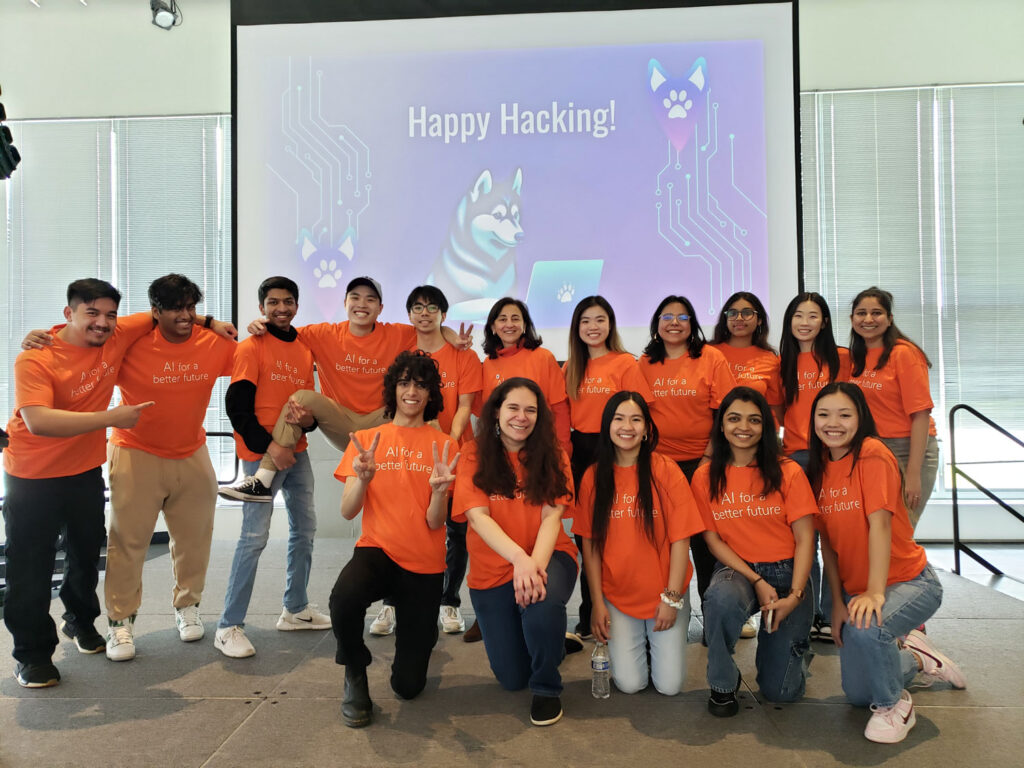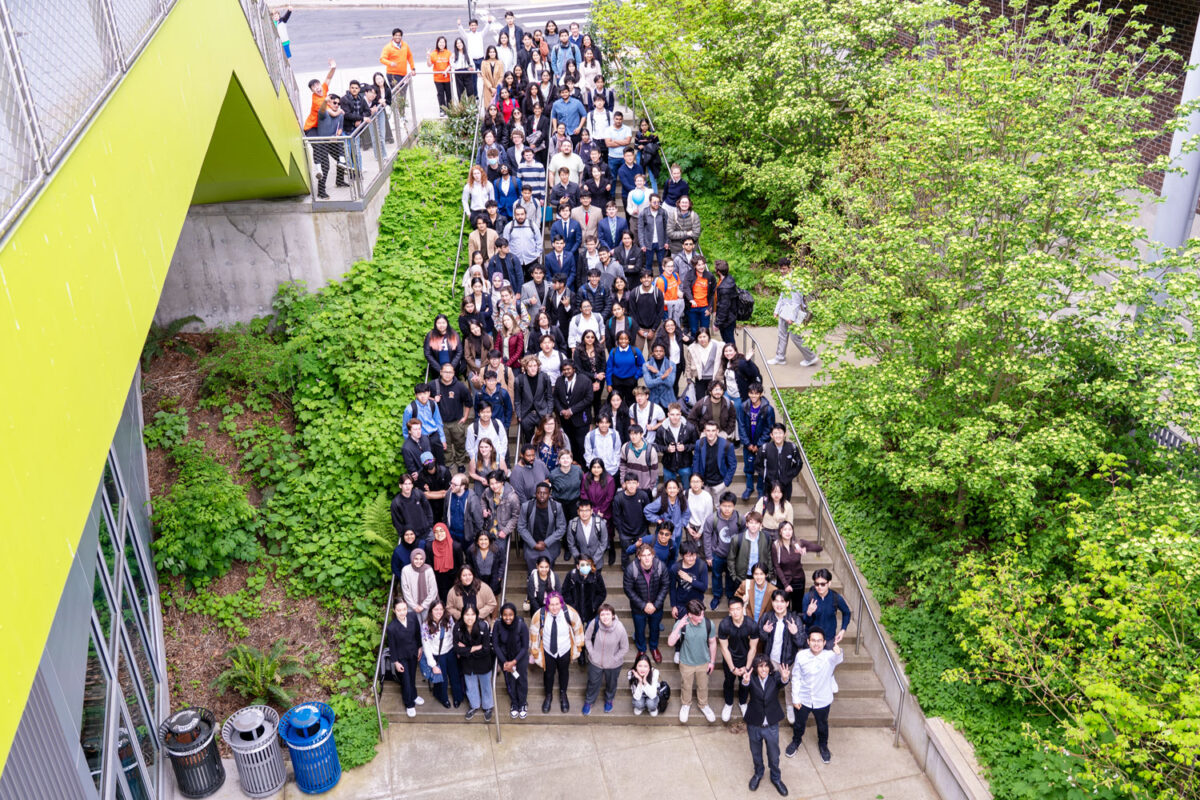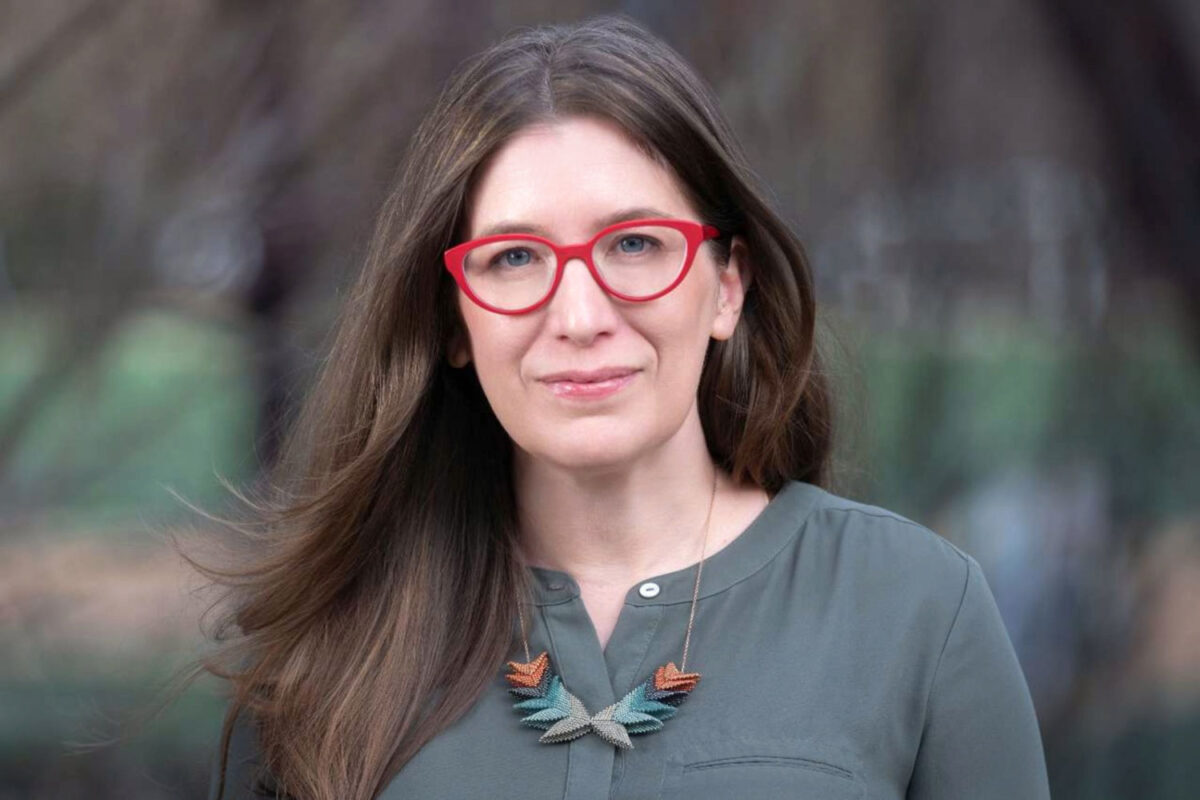Since 2017, the University of Washington Bothell’s student chapter of the Association for Computing Machinery club has hosted an annual hackathon event.
While the term “hackathon” may bring to mind an event centered around breaking into networks, these campus events are a creative opportunity for students to learn skills and build something new around each year’s theme.
This year’s event, “UWB Hacks AI,” invited participants to create solutions related to artificial intelligence. Hosted in the Activities & Recreation Center from April 26 to 28, the hackathon not only drew the largest attendance in its eight years running but was also one of the biggest student-led events in campus history with more than 350 participants.
The secret behind this year’s success? According to the students at the helm, collaboration was the special ingredient that made this year’s hackathon also the best one yet.
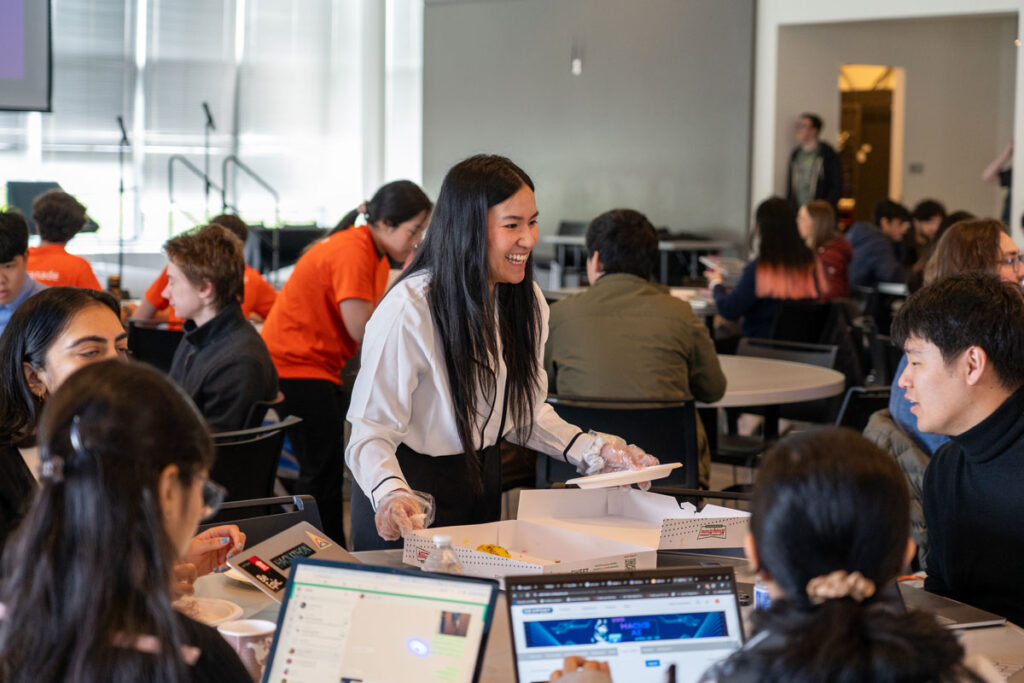
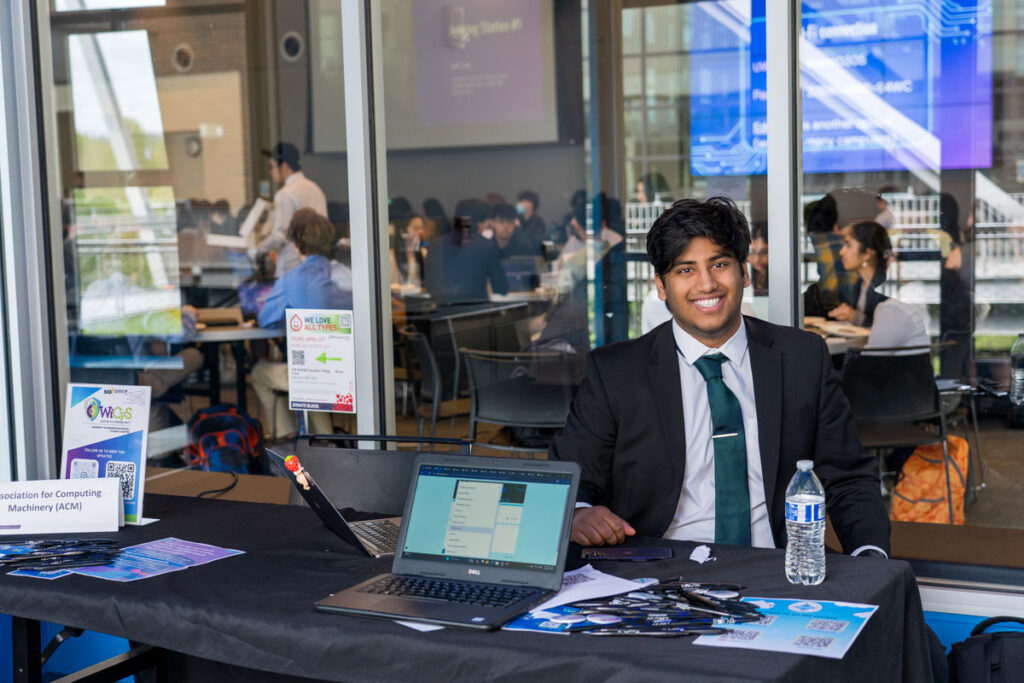
Working together
When Tammy HK Le, secretary for the Women in Cybersecurity Club and president of the Interaction Design Association (IxDA), and Lily Aguirre, WiCyS president and IxDA vice president, attended the annual Club Fair last fall, they approached ACM with an idea to collaborate on this year’s hackathon.
Then, after also attending the annual WiCyS conference in Denver in March 2023, the pair had some ideas on how to make the event bigger and more engaging.
“It was my first conference in my life, and, when I was there, I kept thinking how interesting of an environment it was with the speakers and workshops and different activity stations,” said Aguirre, a senior in Computer Science & Software Engineering. “It was a very community-building event, and I thought about how maybe there was something more that we could do together with ACM.”
Breanna Powell, ACM vice president, and Yash Varde, ACM president, welcomed the opportunity to collaborate with other clubs.
“We were really fortunate that they reached out and expressed interest in joining the ACM to make this a three-club event, and we’re hoping that more clubs will want to join us in the future, too,” said Powell, a graduate student studying CSSE.
In the 2023 hackathon, Powell recalled how ACM’s increased efforts at marketing and visiting classrooms to promote the event paid off when they tripled attendance from the previous year. Working with other clubs could only be a benefit, she added.
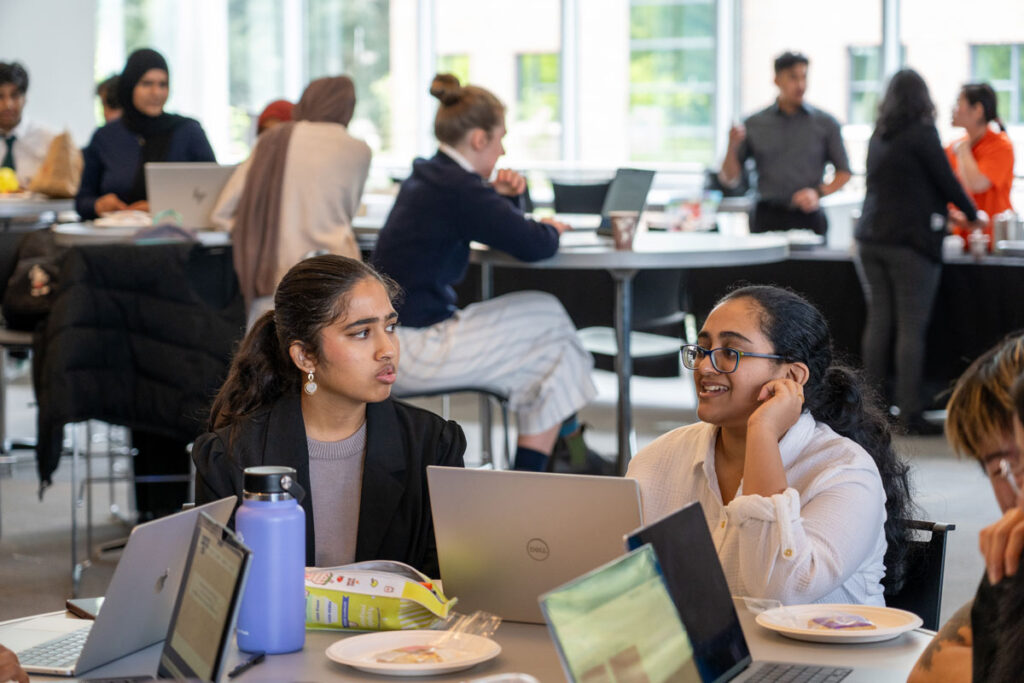
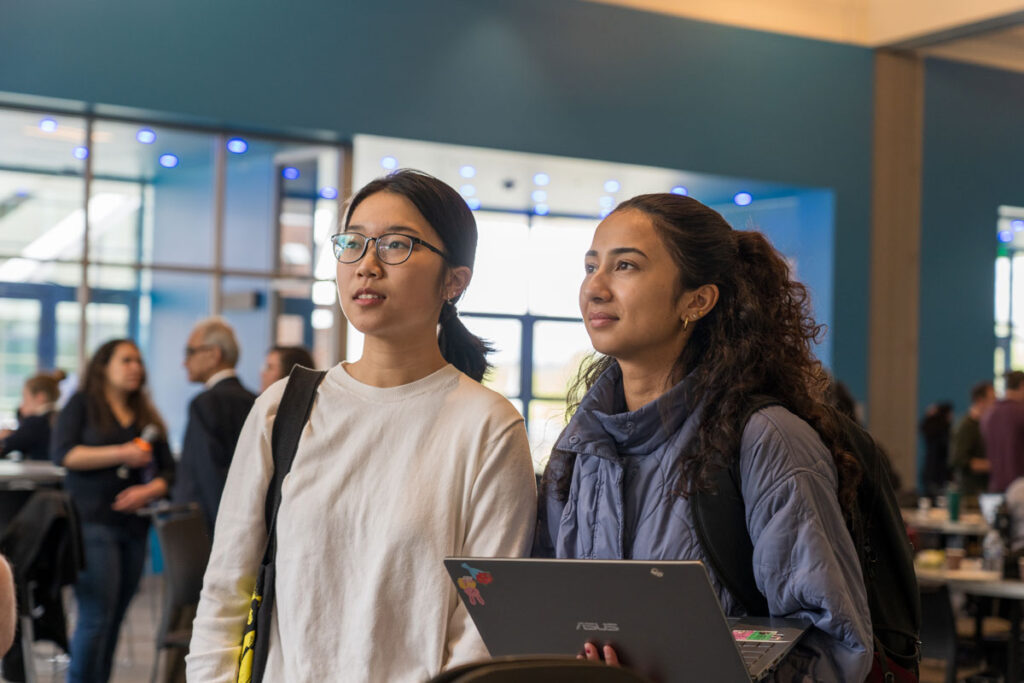
Bigger and better
This year was Powell’s third hackathon as a member of ACM. Each year has been better than the previous, she said, and the team worked hard to ensure the 2024 event would be no different.
One of the significant changes the team made was to make the event more inclusive by adding a track for those with no coding experience. “Regardless of how much experience a participant may have with programming or some other skill, the hackathon should be an opportunity not just to show the skills that you have but also a chance to learn new skills,” said Varde, a senior in CSSE.
The “no code” track was especially appealing to students who aren’t pursuing a computer science-related degree — students such as Sai Kanishk Bathina, a junior majoring in Business Administration.
Bathina had participated in the previous year’s hackathon and recalled how challenging it was to be on a team that didn’t have any computer science students on it. “Implementing the ‘no code’ option was, I think, very inclusive to the business side or the non-technical side for students,” he said.
As an intern for this year’s hackathon sponsor, Avanade, Bathina also served in a unique role to help coordinate the event.
“Avanade really wanted to push forward opportunities to partner with student organizations and have a more collaborative environment,” Bathina said. “This hackathon was a great way for Avanade, and for me, to get involved and see how they can work hand in hand with student groups to push ideas of social responsibility and responsible AI forward.”
Avanade supported the event in many ways, including helping arrange workshops and supplying guest speakers, judges and a team of mentors.
“The Hackathon would not have been possible without the vision and commitment of our wonderful partner Avanade,” said John Naumann, UW Bothell director of corporate and foundation relations. “The company generously sponsored the event and leadership from Avanade worked directly with students to ensure the Hackathon was inclusive and collaborative. UW Bothell is grateful to Avanade for the unwavering support of our students.”
This was a great way for Avanade, and for me, to get involved and see how they can work hand in hand with student groups to push ideas of social responsibility and responsible AI forward.
Sai Kanishk Bathina, junior, Business Administration
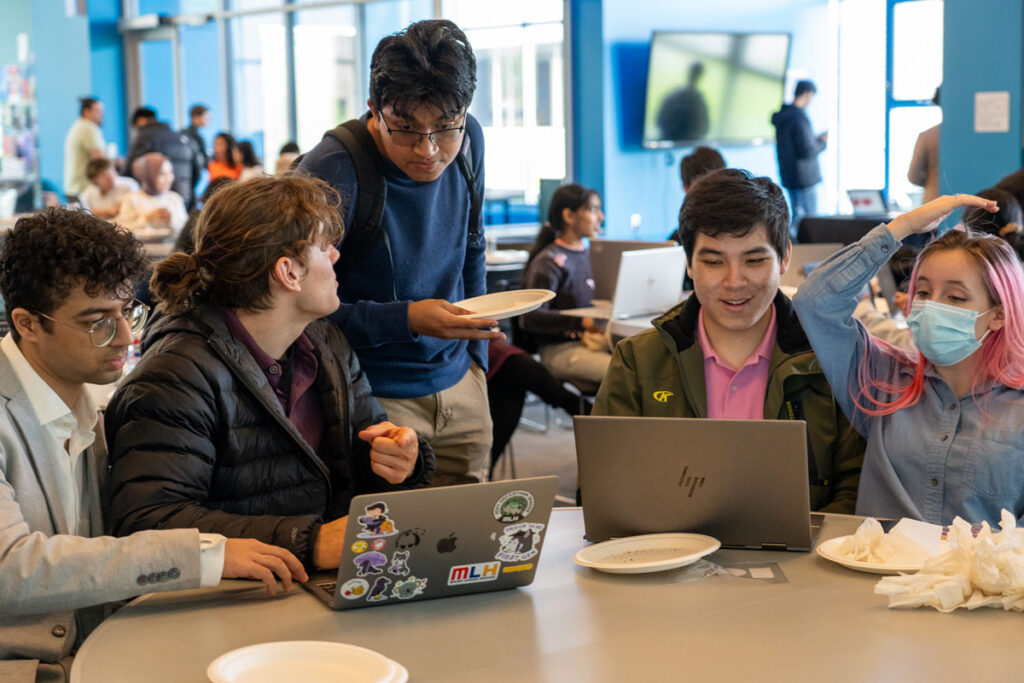
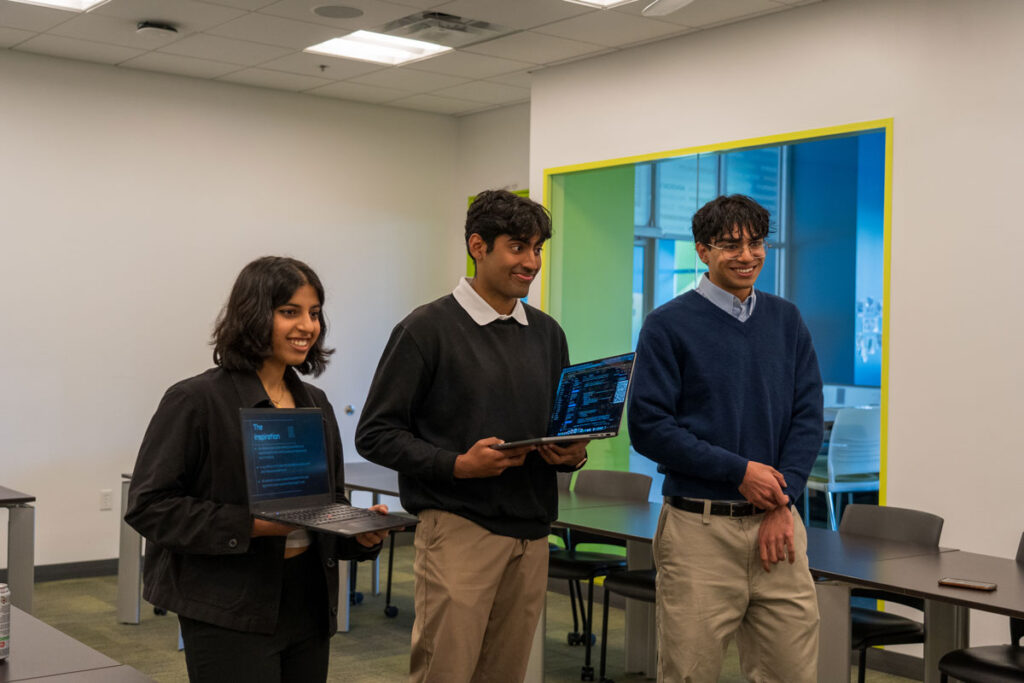
Endless possibilities
With the event open to students of all majors — and even high school students — the final projects, 65 in total, represented a wide spectrum of social issues and ideas for solutions-oriented products and services.
Each project harnessed the power of AI in different ways. In the job-search app Huntr, job hunting takes on the familiar usability of dating apps, such as Tinder, to tailor job opportunities with a simple swipe. Another job-oriented app, Job Bob, acts as a career navigator for users by assessing their resumes and then suggesting jobs.
Health and wellness were also common themes. In the project Freakquency, the app used patient medical history and lifestyle habits to predict probabilities of developing lifestyle diseases and provide an action plan for prevention. In the Addiction Recovery Aid app, recovering addicts are prompted with a daily survey that uses AI to analyze the risk of potential relapse and notify the user’s sponsor.
Other projects included an accessibility centered app, Hearsay, that summarizes, reads aloud and navigates websites with inclusivity in mind as well as a college admissions counselor AI platform, i-Coach.
“The idea of i-Coach was inspiring to me. I felt very connected with the project. As a first-generation college student, I had to navigate the college experience by myself,” Aguirre said. “If there’s a tool like this that could help students who are first-generation or don’t have the money to access certain resources, it would be very beneficial.”
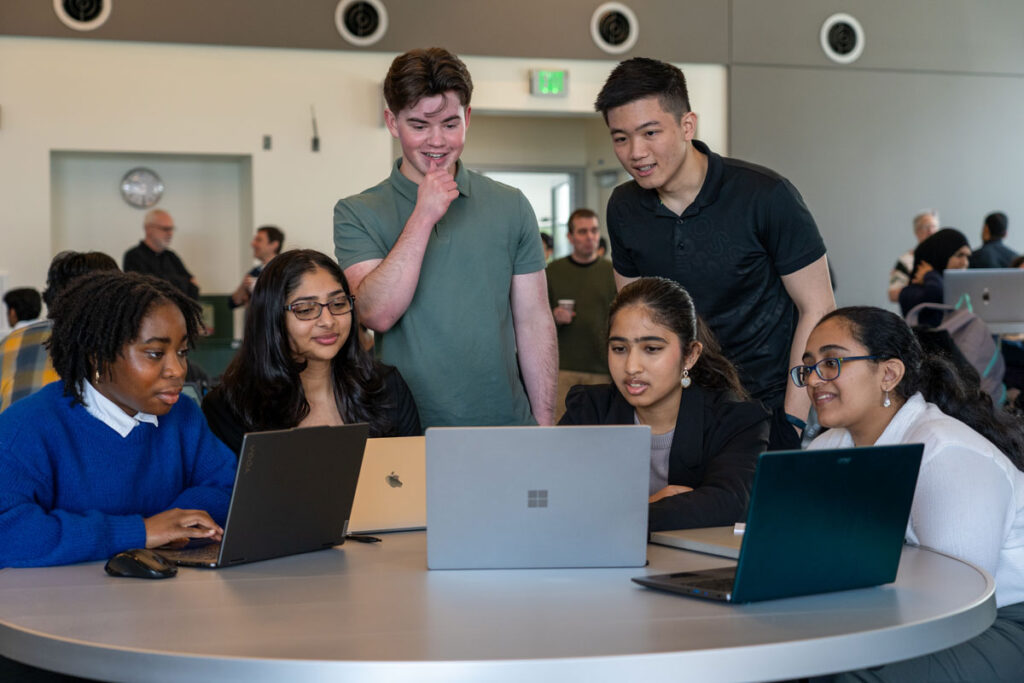
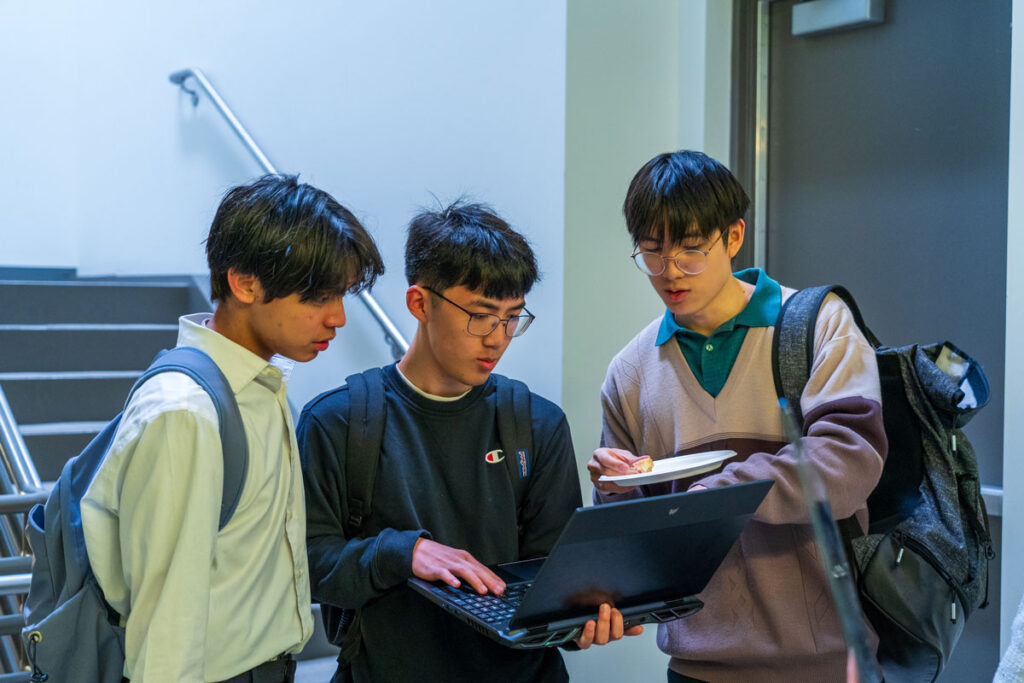
Recognition for hard work
For the grand prize winner of the hackathon, judges (including UW Bothell faculty, partner organizations and industry professionals) selected LoveStorying — an app that aims to cultivate reading habits in kids from a young age by using AI to craft stories and create vivid worlds through images.
“Parents and educators are finding it increasingly difficult to cultivate a reading habit in children, so this was really a great idea, and the team’s presentation was really good,” said Vivek Hegde, ACM treasurer and a winter 2024 graduate from the Computer Science & Software Engineering program. “They are well deserving of the grand prize.”
The team included Brenda S. Vega Contreras, Maria Zhou and Pankti Shah, all graduate students majoring in CSSE.
“LoveStorying was born from our shared vision to engage young readers with this platform that utilizes AI for story creation,” Vega Contreras said. “Winning the Hackathon is incredibly rewarding for our team and our project. It validates our hard work and dedication to making LoveStorying a reality.”
Vega Contreras added that strong coordination, communication within the team and support from each member were all crucial factors to their success.
“I was drawn to participate in the hackathon because it offers a fantastic opportunity to connect with like-minded individuals, push my limits and demonstrate my abilities within a short timeframe,” Zhou said. “We are all proud of ourselves for winning the hackathon, and I would like to express my gratitude to the organizers, sponsors, judges and fellow participants for making this hackathon an enriching and memorable experience.”
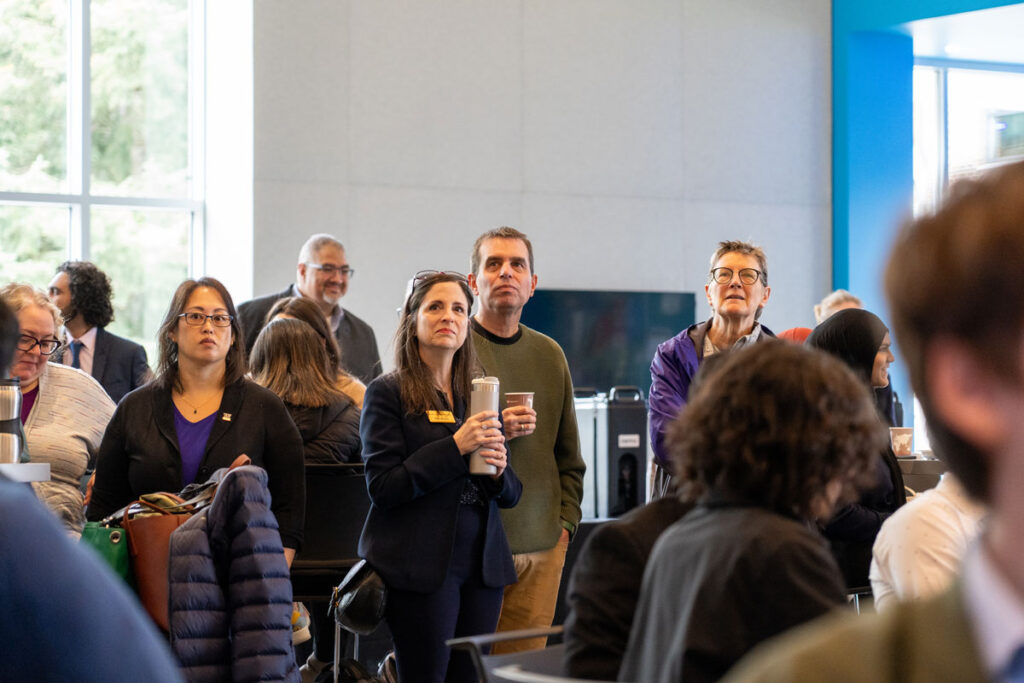
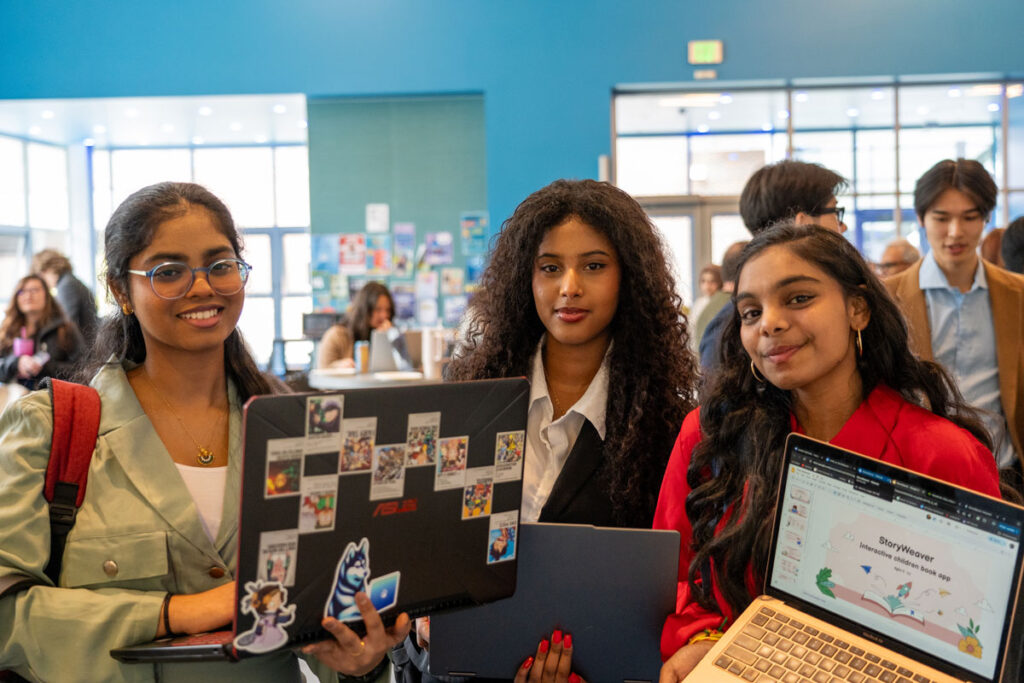
The reward of participation
While winning was certainly a highlight, the work of creating the app was the true reward for the team.
“I would like to encourage all students to participate in school events such as hackathons,” Vega Contreras said. “This was the first time we participated, and it taught us valuable lessons. You don’t need extensive experience to join. Our primary aim was to gain experience and make connections, and winning surpassed our expectations.”
Though the team is happy with the app’s results so far, the developers said LoveStorying is still in its early stages, and the team is committed to continuing development.
As for the hackathon’s planning team, the event was a success, and the students look forward to continuing to grow the event in future years.
“This year we were able to make this event super big and impactful,” Powell said. “We’ve grown through our collaboration together, and we hope that everyone who participated grew from the experience as well.”
The hackathon was made possible through many partnerships with campus clubs, events sponsors and other organizations:
- Women in Cybersecurity (WiCyS)
- UWB Association for Computing Machinery (ACM) Student Chapter
- Interaction Design Association (IxDA)
- BizAI
- ACM-W
- Entrepreneurs of Bothell
- BWiSE
- Alliance for Sustainability (A4S)
- Everett Community College Students for Environmental Action
- IEEE Club
- Beta Alpha Psi
- International Fraternity of Delta Sigma Pi
- Gray Hats Cyber
- Women in Business
- Marketing Club
- Avanade
- Muir AI
- Judges
